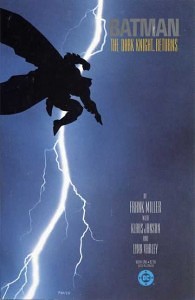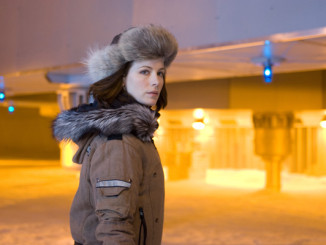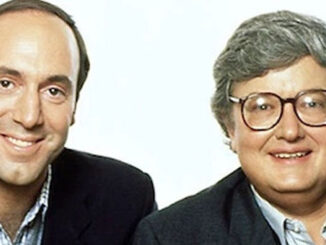In a multi-part series, Comic Book Film Editor William Gatevackes will be tracing the history of comic book movies from the earliest days of the film serials to today’s big blockbusters and beyond. Along with the history lesson, Bill will be covering some of the most prominent comic book films over the years and why they were so special. This time, he talks about the film that kicked the comic book film into high gear—Batman.
 I have two very distinct memories about the first Batman film. First relates to the first time I saw the film. I won tickets from a local radio station for the midnight showing on the weekend it opened. It was dark when I went into the theater, it was dark when I came out, and the movie was dark. It was a totally immersive experience. I fell in love with the movie that day.
I have two very distinct memories about the first Batman film. First relates to the first time I saw the film. I won tickets from a local radio station for the midnight showing on the weekend it opened. It was dark when I went into the theater, it was dark when I came out, and the movie was dark. It was a totally immersive experience. I fell in love with the movie that day.
The other memory relates to the controversy over the eventual tone of the film while it was shooting. I can lie and say that I wasn’t concerned that the film was going to turn out to be a camp fest. But you have to understand that while, in retrospect, the feeling wasn’t justified, it was understandable to be worried.
You would have to understand the conditions the comic fan was living in, especially as it pertained to the Batman franchise. The campy 1960’s Batman TV show tainted the public’s perception of comic books, comic fans and Batman. Comic books became silly kid stuff. Comic book fans above the age of 12 became people who had something wrong with them. And Batman was not to be taken seriously.
 Forget about the fact that the work of Denny O’Neil and Neal Adams made Batman serious again. Forget the fact that Steve Englehart and Marshall Rogers showed that Batman can be inventive and fun without being silly and campy. Forget the fact that Frank Miller was getting written up in Rolling Stone for the awesome job he was doing on The Dark Knight Returns. Comics were silly trifles for kids or less than mature and intelligent adults.
Forget about the fact that the work of Denny O’Neil and Neal Adams made Batman serious again. Forget the fact that Steve Englehart and Marshall Rogers showed that Batman can be inventive and fun without being silly and campy. Forget the fact that Frank Miller was getting written up in Rolling Stone for the awesome job he was doing on The Dark Knight Returns. Comics were silly trifles for kids or less than mature and intelligent adults.
Just take a look at the comic book films that were made in the 80s. All of them were campy in their own way. None of them took the original material all that seriously. All pretty much promoted the comic book stereotypes.
Batman was going to be the first big test. Would producers take a look at how far the comic book Batman had come and do a serious film version of the character? Or, would they go back to the campiness of the TV show? Fans were hoping for the former, but betting on the latter.
 Then Warner Brothers hired Tim Burton to direct, a man whose only major directing work was two comedies –Pee Wee’s Big Adventure and Beetlejuice. Sure, they were good films, and Beetlejuice was dark enough that you could see the way he excelled at mood, but they were still comedies.
Then Warner Brothers hired Tim Burton to direct, a man whose only major directing work was two comedies –Pee Wee’s Big Adventure and Beetlejuice. Sure, they were good films, and Beetlejuice was dark enough that you could see the way he excelled at mood, but they were still comedies.
Then Burton hired Beetlejuice himself, Michael Keaton, as Batman/Bruce Wayne. Sure, he had just recently received good notices for his lead role in the heavy drama Clean and Sober, but he was most known for doing comedies like Mr. Mom and Night Shift.
All signs were pointing to the film being a comedy, which truly disheartened the comic book fans. Yes, casting Jack Nicholson as the Joker was brilliance, but Batfans were certain that they were heading for a campy heartbreak. And they vocalized their heartbreak, not just in the pages of the Comics Buyer’s Guide, Amazing Heroes, and Comics Scene (what passed as the Internet back in the 80s), but also in letters to the studio. But fans had little to worry about, because Burton and Keaton gave us the best comic book film since Richard Donner’s Superman films.
Some of the luster has gone off the original Batman, as the film hasn’t stood up all that well to the test of time. But it was a serious take on the Caped Crusader. It was highly stylized to be sure, but it wasn’t necessarily campy. Sam Hamm gets credit for the script, but his work contains elements from previous scripts by Steve Englehart and Tom Mankiewicz, and was rewritten by Warren Skaaren, Charles McKeown and Jonathan Gems. It remained true to the spirit of the comic while allowing Burton to apply his unique style to film.
Keaton excelled not only as Batman but also as Bruce Wayne, who he cannily played as a scatterbrained dilettante. Nicholson was exceptional as the Joker, benefiting from a role that allowed him to be as hammy as he wanted to be.
Burton stayed on to direct the sequel, Batman Returns.
 Critics usually finger the next sequel, Batman Forever, as the beginning of the franchise’s rapid decline into camp and chaos, but, if you look closely, you can see the roots of the decline in this film.
Critics usually finger the next sequel, Batman Forever, as the beginning of the franchise’s rapid decline into camp and chaos, but, if you look closely, you can see the roots of the decline in this film.
In a lot of ways, this film was Burton making the franchise his own. He was vocal about being less than pleased with the more action oriented Batman, and was given more creative control this time around. This was obvious through the look of the film, as some of the henchmen in the film look like they sprang to life directly from Burton’s sketchbooks.
However, the film suffered from the flaw that hampered many a comic book film—too many villains. You had the Penguin (played creepily well by Danny DeVito), you had Catwoman (Michelle Pfeiffer, great in a role that originally was Annette Bening’s and that original Vicki Vale, Sean Young, infamously broke onto the Warners lot to pursue), you had Max Shrek (Christopher Walken, good as always) and various henchmen. Add to that the fact that early versions of the script had Robin and Harvey Dent as characters; it could have been way more crowded.
 The film was loaded with dark humor which spilled over to camp. The only thing that kept the army of penguins with missiles strapped to their backs from being full on camp was the fact that the film was so dark and bleak. The scene seems a bit out of place. I don’t know if the penguin army scene was written by main scribe Daniel Waters or Wesley Strick, who was hired to rewrite Waters’ script and added the Penguin’s baby-killing final gambit.
The film was loaded with dark humor which spilled over to camp. The only thing that kept the army of penguins with missiles strapped to their backs from being full on camp was the fact that the film was so dark and bleak. The scene seems a bit out of place. I don’t know if the penguin army scene was written by main scribe Daniel Waters or Wesley Strick, who was hired to rewrite Waters’ script and added the Penguin’s baby-killing final gambit.
Batman Returns would be the last time Burton and Keaton worked on the franchise. The film does have the dubious legacy of inspiring a spin-off for Pfeiffer’s Catwoman character, a film that resided in development hell until finally making it to the screen in 2004 in a far different, quite awful form. But it does have one positive legacy in inspiring Batman: The Animated Series, which made its way to the silver screen with Batman: Mask of the Phantasm. That’s what we’ll be talking about next time.




